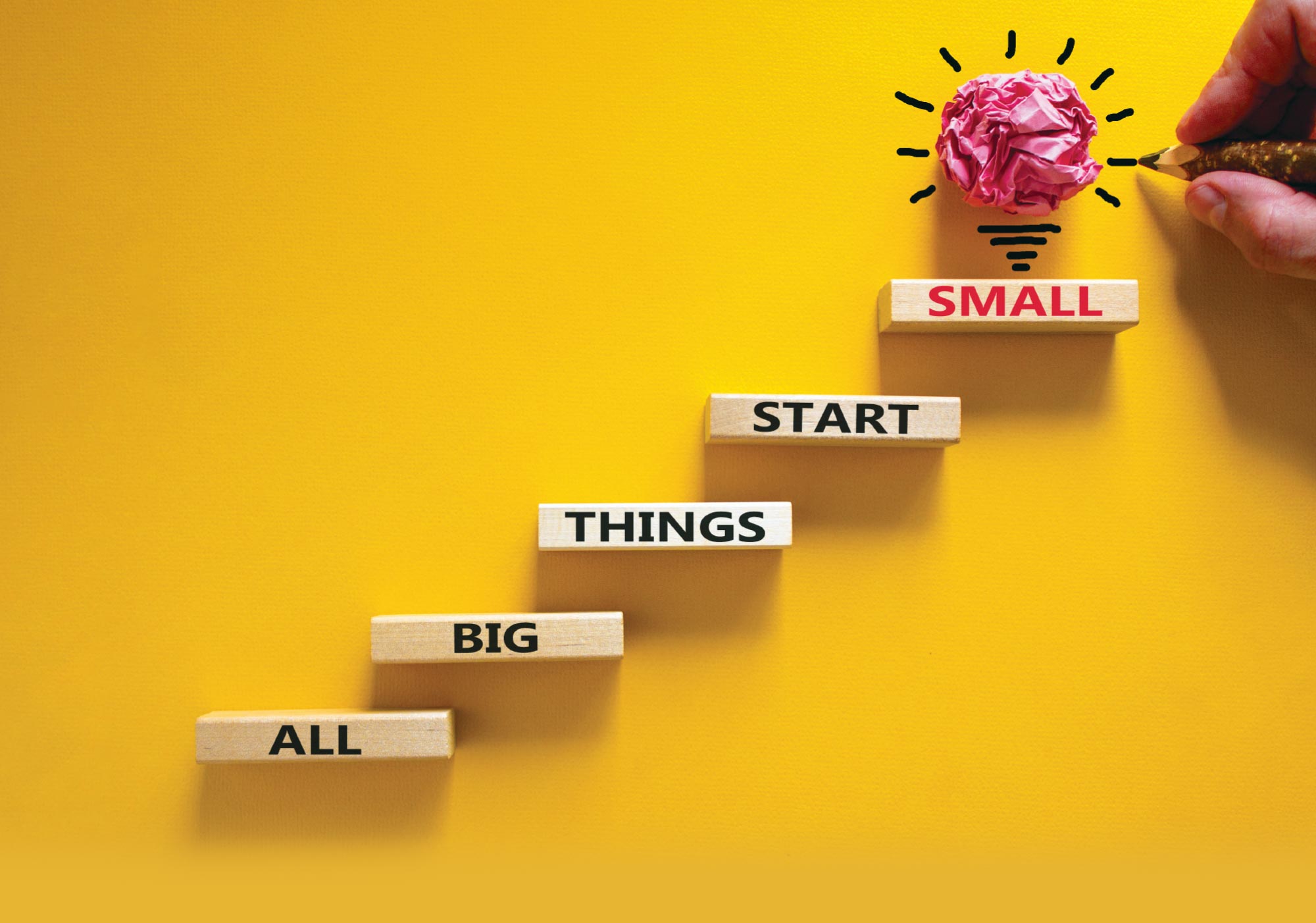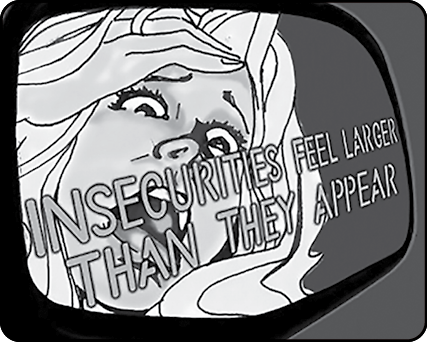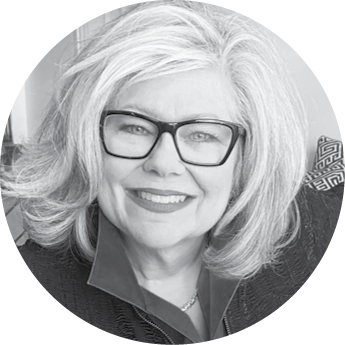Even subtle changes may feel incredibly uncomfortable, especially for someone in the professional spotlight. Vulnerability in the workplace is rare. Judgments run rampant; no one wants to look stupid to their colleagues.

Even subtle changes may feel incredibly uncomfortable, especially for someone in the professional spotlight. Vulnerability in the workplace is rare. Judgments run rampant; no one wants to look stupid to their colleagues.
Beyond the Comfort Zone
an a comfort zone actually be “bad”? It begs closer examination, especially if what feels good is simply an excuse to avoid what is challenging. Most of us want to work by feel—if it feels good it must be OK, right? But I have come to believe that even bad habits can feel good just because they are familiar.
I learned this lesson the hard way more than once in my own life, and I use these experiences in my work as a communications coach and consultant. A large part of my job is help ease my clients into “changes,” which often serve as a return to their most authentic self. Even the most subtle change can feel scary when done in front of colleagues, clients, or—gasp!—a large audience. Fear of embarrassing oneself, fear of making mistakes from which we cannot recover, fear of emotional judgments and rejection—all of these fears create a safety zone from which it is difficult to move.
I am incredibly stubborn in an optimist kind of way, believing I can make lemonade from lemons, even when those lemons are laced with arsenic. My coaching schedule had ballooned to more than 200 days a year on the road, which ultimately bestowed on me a cracked neck vertebra after tossing my ridiculously heavy travel case onto my already stressed shoulder. I was so sure I could handle it all. Major surgery and a divorce were not enough to grab my attention. So what did? A trip to the grocery store.
One sunny day, I left my condo for the three-minute drive to the nearby Tom Thumb, just like I had done a thousand times before. This was Dallas, and no one walks in Dallas, you drive. Only this time, as I stepped from my car, I realized I had no memory of driving there. None. It was like one minute I was getting into my car and the next thing I knew I was standing in the parking lot. This short drive had become so familiar, so routine, I could do it blindfolded, and it appears I did.
How many other habits and activities had I performed in a sort of coma-like vortex? Was it possible to enjoy my work when I often struggled with jet lag, sleep deprivation, and indigestion? It was a question I had not stopped to consider. My “comfort” zone had adapted to discomforts so well, even the unacceptable had become acceptable.
I knew I did not want to sleepwalk through the remainder of my life, and I began to question the status quo. I loved coaching, but I detested the travel I had once enjoyed. I was even sick of driving! Having lived in Los Angeles and Dallas, I felt I had spent half of my life sitting in traffic. My weight was up, I rarely saw my friends, and vacations were rare unless I extended a business trip for a quick visit to family. I was single, with no time for a date, and my beautifully renovated condo sat mostly vacant. Hmmm… something had to change.
I presented the idea of opening a New York office to my boss. When this was rejected, I resigned. I devised a plan and within six months I sold my 2b/2b condo, gave away my car, and moved into a 450-square foot studio apartment in Manhattan.
By now, you might be thinking, “If you wanted change, why not try a different grocery store, you dummy!” But aside from being an optimist, I tend to be an all-or-nothing kind of gal. Fear, emotional pain, and my need for a new perspective were so overwhelming, the idea of moving across country didn’t seem like such a big deal. It was, and my former comfort zone became a memory.
Fortunately, my leap into an abyss of eight million people provided the dry erase board on which I could design a new business model, one that embraced public speaking, writing, and creative direction as well as coaching. I began tapping into my theater background to enhance corporate events. I became a public speaker, engaging audiences, conducting workshops, and writing on a subject that remains near and dear to me—authenticity. I am the manager of my time and travel, prioritizing my well-being. I have learned to say “no” diplomatically, and sometimes firmly. I believe none of this would have been possible if I had stayed in Dallas working for someone else. And, most importantly, by living a more authentic life, I am a better coach, friend, and life partner.
Huge upheavals like mine are not necessary, nor do I recommend them. My clients provide a daily reminder of how challenging it can be to gain personal perspective when we are immersed in a routine. I’ve learned that small but consistent behavioral changes bring about significant and sustainable improvements, and I embrace the importance of objectivity.
Even subtle changes may feel incredibly uncomfortable, especially for someone in the professional spotlight. Vulnerability in the workplace is rare. Judgments run rampant; no one wants to look stupid to their colleagues. With a little assistance, on closer examination it is easier to determine that what seems outrageous may be imperceptible to others.

How do we gain objectivity and try new things when there is so much riding on our success?
I have three suggestions for smoothing the road to establishing personal objectivity.
First, start small. Please. You do not have to move 1,500 miles for a fresh start.
My client wanted a promotion and felt he was doing everything possible to be seen as the ideal candidate, save for the fact that he was constantly running late. This is not an easy fix for someone who tends to overbook himself, has difficult saying no, and is unable to ask for assistance. Oh, and he did not see tardiness as a relevant issue.
We could not address all aspects of time management simultaneously, so we started small. We started with the easiest fix first: setting notifications on his smartphone. No, this hadn’t really occurred to him. He had a great inner clock.
This takes me to the second concept: Easy does it.
Many people want to tackle their biggest issue first, but the joy of small victories contributes to our ability to master far more challenging behaviors.
A former client, an admitted introvert and inexperienced presenter, was “requested” to speak for 45 minutes at a very large conference. It was more than a request.
We started not only small, but simpler and easier to digest. His first assignment was to speak up in situations where he would normally stay quiet. He was to ask questions or, better, provide answers in team meetings. This provided us the roadmap to what inhibited him in the first place. Next, he made a three-minute presentation, then five, then 10. He spoke to a group of seven, then 20 and 30. Before I knew it, he volunteered to provide a short introduction to the main speaker before a group of about 100. Each win was another step in the journey to the main stage at his company’s conference. Let me tell you, he rocked the room.
Third is to ask the question, “Do my actions (habits) support my goals and ideals?” Or as Dr. Phil used to say, “How’s that working for you?”
Clients often need help setting a goal; they may need more help assessing why what they do doesn’t work.
A young woman admitted to feeling isolated and alienated from her team. Her company’s flexible hybrid work schedule meant few mandatory in-person meetings, but I soon found that she resisted all forms of direct contact, going so far as to not turn on her camera during virtual meetings. Ever. She also ordered her Starbucks latte on the app and slipped in and out without looking at another person. At work she texted or emailed rather than used a phone, and all of these practices trickled down into her personal life.
Fortunately, she quickly saw how her choices did not support her desire for camaraderie with her colleagues. We started small—she turned on her computer camera, which meant washing her hair. She began making one phone call a day, even when an email would suffice, and soon she was attending one monthly meeting and staying for lunch.
These three simple ideas help me creatively serve my clients and keep me on track as well. I rarely feel the need for enormous changes, and New York has become a comfortable, familiar, yet invigorating environment, inspiring new ways to venture out for groceries.
I would like to share one last insight that has served me well. I rarely combat bad habits directly, whether my clients’ or my own. I support indulging our authenticity. By doing more of what we do well, what we enjoy and love, we more easily overcome the challenges we want to fix. When we honor our authenticity, we grow stronger, wiser, and braver. And those pesky insecurities? They fade in that rearview mirror as we leave them behind.

Muller’s award-winning book, Opening Your Presence, was translated and published in Chinese and Greek and is now in its second edition. She is a public speaker and conducts workshops on the power of bold authenticity.